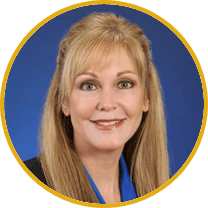Medicare Advantage (MA) Plans are adding two new dementia codes in their risk adjustment payment system and expanding flexibility in the MA benefit design.
Starting Jan. 1, 2020, CMS will incorporate into its risk score calculation for MA plans an alternative payment condition model that includes additional Hierarchical Condition Category (HCC) codes for dementia: HCC51 — Dementia With Complications and HCC52 — Dementia Without Complications. Plans will have a financial incentive to capture the appropriate diagnosis codes, and by assigning equal weights to the two codes.
The risk adjustment Hierarchical Condition Category (HCC) assigns a risk score to each beneficiary based on their diagnoses and demographic characteristics. HCC 51, and HCC 52 meet the conditions for inclusion in the HCC Risk model because they are well-specified, predict medical expenditures, are definitively diagnosed and can indicate significant disease burden.
Dementia and Alzheimer’s are currently underdiagnosed. The inclusion of these conditions in the CMS-HCC risk adjustment model represents an opportunity to improve their coding.
Better coding of dementia and Alzheimer’s disease may result in better care planning for these patients. While this would not likely reduce costs for dementia patients, it could improve the quality of care and care planning if MA plans made sure providers reflect the conditions in their patients’ treatment plans.
John Dwyer, president and founding board member of the Global Alzheimer’s Platform, says his organization is hopeful that the availability of new MA supplemental benefits and the new risk adjustment codes will do more to raise awareness of dementia treatment options, including enrolling in clinical trials, since one of the biggest challenges with drug research and development is recruitment.
“Memory fitness programs are a largely undefined non-specific clinical benefit that plans are starting to slowly roll out,” explains Dwyer. These could range from discounts to online “brain training” exercises that are incorporated into a fitness or overall wellness benefit to something more substantial that is dedicated to brain health.

Lisa is a turnaround expert who excels in navigating unsteady, complex, and ambiguous environments. She has provided C-suite education to over 10,000 organizations in the home care sector for decades. Lisa’s trusted voice in the industry has been recognized for her ability to manage disruption, identify new growth and revenue opportunities, and develop high-level engagement strategies between home care and referral partnerships. Her contributions are instrumental in advancing the future of home care.


